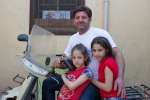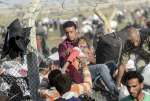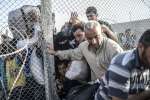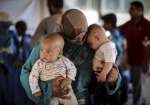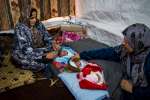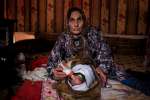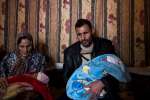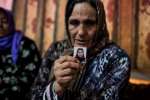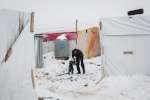Refugees in Lebanon caught in vicious debt cycle
Briefing Notes, 20 November 2015
This is a summary of what was said by UNHCR spokesperson Adrian Edwards – to whom quoted text may be attributed – at the press briefing, on 20 November 2015, at the Palais des Nations in Geneva.
Nearly 90 percent of the more than one million Syrian refugees in Lebanon are in deepening debt, according to the findings of a new survey by UNHCR, UNICEF and WFP. The survey was based on an assessment of more than 4,000 refugee households and over 100,000 family visits this year.
The amount of money Syrian refugees owe to landlords, shop owners, friends and relatives has jumped 22 per cent in 2015. Savings are exhausted, ability to find work is diminished, and humanitarian assistance has dwindled due to shortages of funds. The average accumulated debt per Syrian refugee family per month is now US$842, an increase of US$180 from last year. Refugees are borrowing to cover basic needs – rent, food and healthcare – and successive small amounts are becoming unshakable burdens.
Nearly 40 per cent of refugees are in debt to their landlords, typically being more than two months behind on their rent. One father we spoke to was five months behind with his rent for a small patch of private land on which he has put up a makeshift tent. He was desperately hoping not to be evicted this winter. [See our video story out today] Thirty nine per cent of refugees surveyed said they are not getting medical care because of the high costs of treatment and drugs. People are coping by cutting the number of meals per day, and reducing portion sizes. But many but still have to borrow money from shop owners, friends or relatives to feed their families. Meat is rarely consumed and eggs are eaten only once a week, at best. Many adults are eating less to make sure their children are fed.
The percentage of refugee households buying food on credit has jumped to more than 75 per cent from 30 per cent in 2014, and 19 per cent in 2013. Part of the reason for this is cuts in WFP food assistance that came into effect in July. Last year, three quarters of refugees were receiving food assistance of $30 per person, per month. Today, just over half of refugees receive any food assistance and the amount they receive has fallen – currently standing at $21.60 per person per month.
Overall, it's estimated that 70 per cent of refugees in Lebanon are now living below the national poverty line of US$3.84 per day. And they are being forced to prioritize between vital but competing needs. As well as reducing calories and nutrients in their diets and ignoring ailments, people are increasingly withdrawing their children from school, often sending them to work in an exploitative informal labour market. They face greater risks of being evicted from their homes and, as their ability to pay off debts wanes further, they are likely to lose the trust of lenders – worsening relations with the host community.
The vulnerabilities of Syrian refugees in Lebanon have been compounded by additional requirements that have been in place since January relating to their stay in Lebanon. Residency must be renewed every six months, and to do so registered refugees of working age have to sign a notarized pledge not to work. Most Syrian refugees who work do so informally, finding jobs in agriculture or construction for a few days each month, typically earning no more than US$15 for a 12-hour working day. Women and children earn as little as $4 for a day's agricultural work.
UNHCR advocates for refugees to be allowed to support themselves where possible, while recognizing the need to avoid disruptions to local labour markets. We are recommending that the pledge not to work be waived or, at least, re-worded so that refugees can work in certain sectors such as agriculture or construction in line with Lebanese law and where there is demand. These are traditional sectors of activities for Syrian workers in Lebanon. We are also advocating for investments to be made in Lebanese businesses where there is scope to help local business and, indirectly, create livelihood opportunities for needy Lebanese and in turn for refugees- such as in textiles, food processing, environmental services, agriculture and construction.
Without better funding, humanitarian agencies are not able to increase aid, aggravating the now endemic debt trap faced by the overwhelming majority of refugees in the country.
Lebanon's appeal of USD 1.87 billion for 2015 is currently funded at only 45 per cent.
The Vulnerability Assessment of Syrian Refugees (VASyR) in Lebanon will be published on UNHCR's data portal next month. The Executive Summary is available here
More Information:
UNHCR has released a video today about a Syrian refugee's struggle with debt, available on our YouTube channel here
Media can download:
Video – international version here
Script/shot-list here
For more information on this topic, please contact:
- Dana Sleiman in Beirut +961 71 910 626
- Ariane Rummery in Geneva +41 79 200 7617





